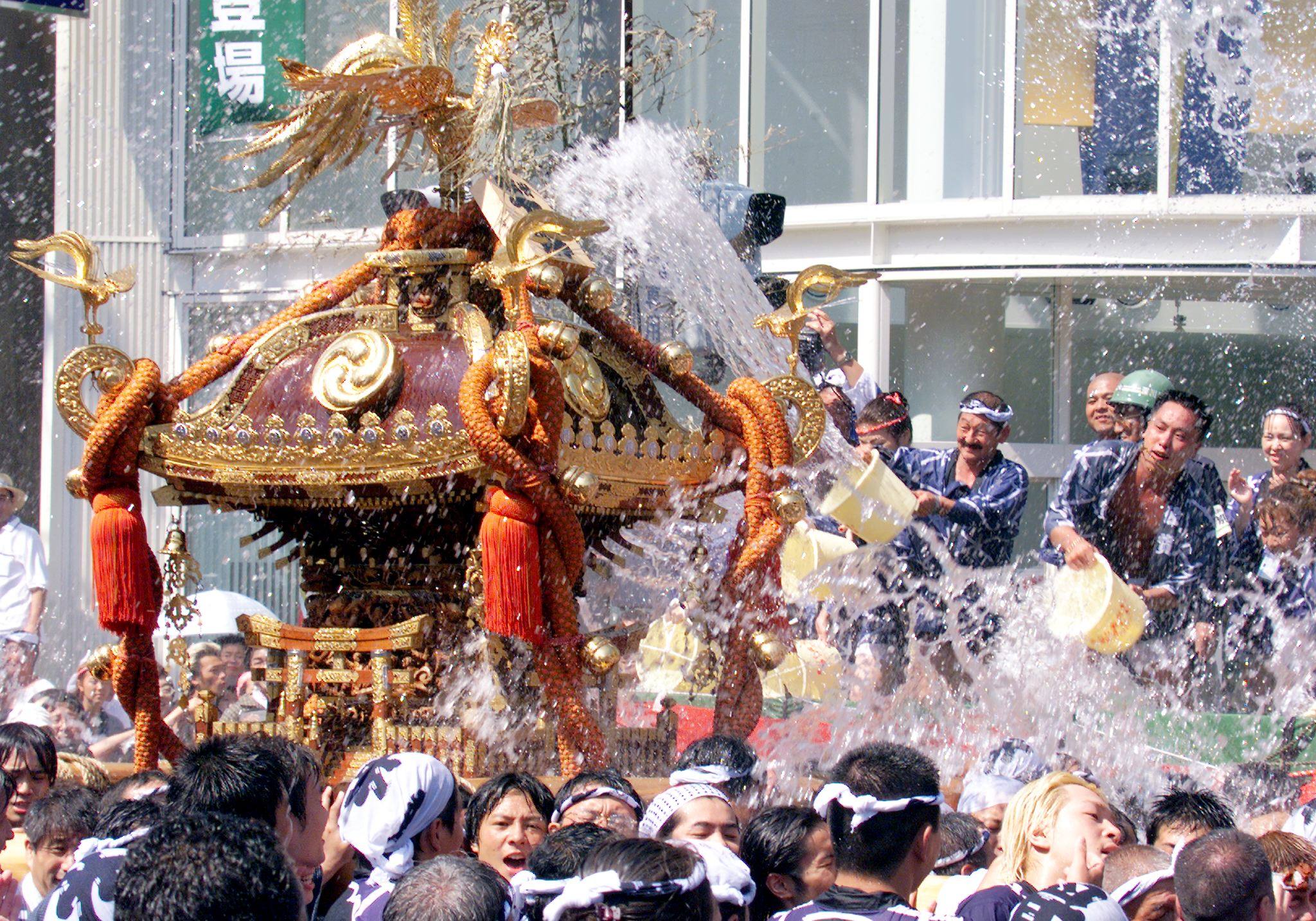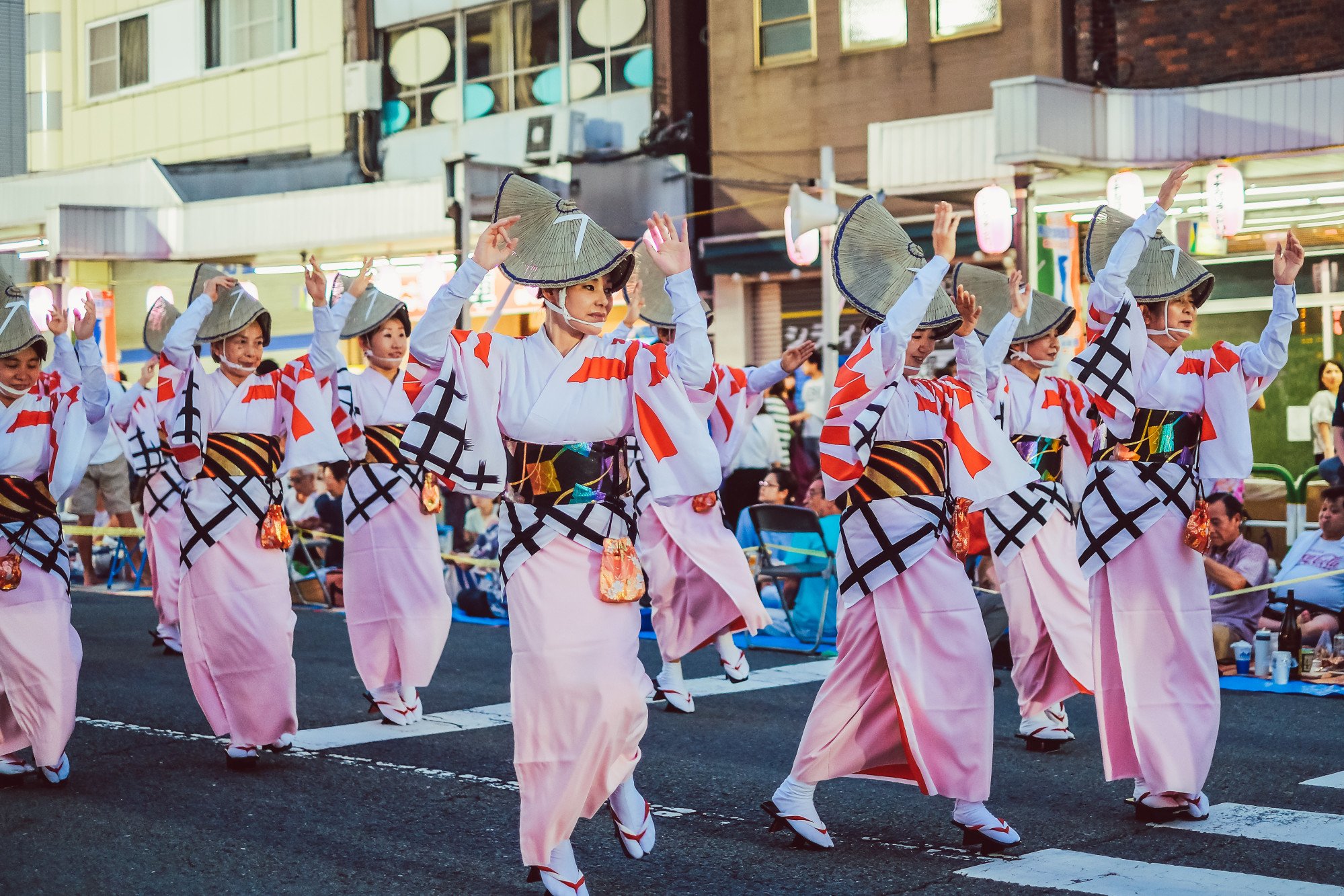Japan reschedules iconic summer festivals to avoid increasingly extreme heat
Faced with record high temperatures and ageing communities, event organisers are adapting to keep traditions alive

In a bid to escape the soaring summer temperatures now becoming the norm across Japan, cities are moving traditional festivals – including beloved fireworks displays – to spring and autumn for the sake of safety and comfort.
One of the most prominent examples is Tokyo’s century-old Adachi Fireworks Festival, which will take place on May 31 this year rather than its usual late July slot, according to a report by the Mainichi Shimbun.
The city was forced to cancel last summer’s fireworks festival due to a sudden thunderstorm just before it began. By moving the event to an earlier date this year, organisers hope to avoid such weather-related disruptions – but the bigger concern is the escalating heat, Adachi ward mayor Yayoi Kondo said in a statement on the ward’s official website.
“The summer lately has significantly changed from what we knew as ‘Japanese summer’, where people clad in ‘yukata’ summer kimonos admired fireworks while cooling themselves with ‘uchiwa’ paper fans,” Kondo said.
She acknowledged the nostalgia that many feel for the original timing, noting “some people want to see the fireworks festival held in summer, calling it a summer tradition”.

But temperatures in Tokyo have increasingly tested the limits of tradition.
On the day the festival was scheduled last year, thermometers topped 35 degrees Celsius (95°F) in the morning, with little respite on the riverbed where the event is held. A security guard was hospitalised for heatstroke and others reported feeling unwell in the oppressive conditions.
Public reaction to this year’s change has been largely positive, according to a representative of the local tourism association, with many families welcoming the opportunity to bring small children without braving the extreme heat.
Other traditional festivals across the country have made similar adjustments.
In the city of Yokkaichi in western Japan, organisers of the whale boat festival – a centuries-old ritual to pray for a good fish catch – have pushed the celebration from mid-August to late September. The event, which features floats shaped like ships being paraded through the streets in a simulated hunt, is recognised on Unesco’s list of Intangible Cultural Heritage.
Despite organisers’ efforts to mitigate the heat, including deploying mist sprayers, authorities said they chose to move the date to later this year out of concern that any emergency might come too late to prevent serious harm.
Of the nearly 100 participants and staff, almost half are aged 60 or older – reflecting the community’s ageing population – while elementary school students help preserve the tradition by serving as harpooners on the floats.
The Soma Nomaoi festival in northeast Japan, which features costumed samurai re-enactors on horseback, has also been rescheduled. In 2023, a horse participating in the event died of sunstroke, prompting organisers to move the event from July to May this year.
Japan has faced intensifying summer heat for decades, with scientists linking the trend to global climate change. But the threat is becoming more acute.
According to Japan’s Meteorological Agency, the country could face once-in-a-century heatwaves every year if global warming continues unchecked.
A report released in March warned that if global average temperatures rise by 4 degrees Celsius, Japan could experience these “centennial extreme temperatures” – previously seen only once per hundred years – 99 times per century. Under such a scenario, extreme hot days in Japan would be nearly 6 degrees above pre-industrial levels.
Already, the national average temperature has risen by 1.3 degrees since the beginning of the 20th century, the agency noted.